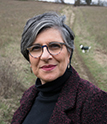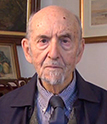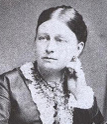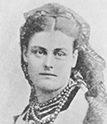Robert A. Cantrick grew up in the United States and attended the University of Rochester and the Johannes Gutenberg University in Mainz, earning a BA degree in German. He did graduate work at the universities of Cologne and Bonn on a fellowship then continued studies in Germanic languages and literature at Indiana University (Bloomington) on a teaching assistantship. Among many other things, he worked as a freelance translator, in-house translator and editor, and legal secretary-translator. Beginning in 2015 he concentrated on literary translation. In 2016 he was one of the winners of the New Books in German Translation Competition. In 2017 he won second prize in the John Dryden Translation competition. In 2018 he was one of the featured translators at the Festival Neue Literatur in New York City. Bob Cantrick passed away in November 2020.

Matilda Colarossi grew up in Windsor, Ontario, Canada. She attended the universities of Windsor and Toronto earning an Honours BA degree in Drama and Italian Literature. In 2001 she attended the Protr@d Translation course in Florence under the direction of Magda Olivetti and spent the next 15 years translating mostly academic and commercial texts. In 2014 she started her blog, paralleltexts: words reflected, and has since also been translating literature. Her translations can be found in various literary magazines and journals. She is currently working on a translation of Excluded by Luigi Pirandello to be published by Noumena Press.
 Irving Massey received his B.A. from McGill University, MA’s from both Harvard and Columbia University, and his Ph.D. from Harvard. He taught at the SUNY University at Buffalo from 1964-1996. He has published many books, including Find You the Virtue: Ethics, Image, and Desire in Literature; The Uncreating Word: Romanticism and the Object; and most recently, The Neural Imagination: Aesthetic and Neuroscientific Approaches to the Arts. He has recently completed a book entitled Necessary Nonsense.
Irving Massey received his B.A. from McGill University, MA’s from both Harvard and Columbia University, and his Ph.D. from Harvard. He taught at the SUNY University at Buffalo from 1964-1996. He has published many books, including Find You the Virtue: Ethics, Image, and Desire in Literature; The Uncreating Word: Romanticism and the Object; and most recently, The Neural Imagination: Aesthetic and Neuroscientific Approaches to the Arts. He has recently completed a book entitled Necessary Nonsense.
 Clara Bell, née Poynter (1835–1927), was an English translator fluent in French, German, Danish, Dutch, Italian, Norwegian, Russian, and Spanish, noted for her translations of works by Balzac, Georg Ebers, Huysmans, Ibsen, Maupassant, and others. She was educated in France, where she became fluent in French and German; she did not acquire her knowledge of the other languages until after her fortieth birthday. She spent most of her life in London. Bell was born in Westminster to architect Ambrose Poynter and Emma Forster; her brother was Sir Edward Poynter, a director of the National Gallery. She was a distant relation of Edward Burne-Jones and Rudyard Kipling. She was married to banker Robert Courtenay Bell (1816–1896) with whom she had six children, one of whom was Charles Francis Bell, who oversaw the Fine Art Department of the Ashmolean Museum in Oxford. Under the direction of George Saintsbury, Bell, Ellen Marriage, and Rachel Scott were responsible for translating the vast majority of Balzac’s Human Comedy into English, superseding earlier translations that had generally been regarded as stilted. The low pay that translators received at that time required Bell and her colleagues to complete work quickly, but her translations have nonetheless been noted for their close adherence to the source texts, and their high degree of readability.
Clara Bell, née Poynter (1835–1927), was an English translator fluent in French, German, Danish, Dutch, Italian, Norwegian, Russian, and Spanish, noted for her translations of works by Balzac, Georg Ebers, Huysmans, Ibsen, Maupassant, and others. She was educated in France, where she became fluent in French and German; she did not acquire her knowledge of the other languages until after her fortieth birthday. She spent most of her life in London. Bell was born in Westminster to architect Ambrose Poynter and Emma Forster; her brother was Sir Edward Poynter, a director of the National Gallery. She was a distant relation of Edward Burne-Jones and Rudyard Kipling. She was married to banker Robert Courtenay Bell (1816–1896) with whom she had six children, one of whom was Charles Francis Bell, who oversaw the Fine Art Department of the Ashmolean Museum in Oxford. Under the direction of George Saintsbury, Bell, Ellen Marriage, and Rachel Scott were responsible for translating the vast majority of Balzac’s Human Comedy into English, superseding earlier translations that had generally been regarded as stilted. The low pay that translators received at that time required Bell and her colleagues to complete work quickly, but her translations have nonetheless been noted for their close adherence to the source texts, and their high degree of readability.
George Burnham Ives (1856-1930) was an American bibliographer, editor, and translator. A member of Salem’s prestigious Pickering family, Ives was a summa cum laude graduate of Harvard Law School, and went on to become the Assistant District Attorney of Essex County. Despite this auspicious background, on 12 May 1890 Ives plead guilty to charges of embezzlement and forgery, having been caught misappropriating tens of thousands of dollars from various trust funds as well as squandering his wife’s inheritance. He was sentenced to 8 1/2 years at Charlestown Prison and was disbarred for life. However, as a devoted student of French history and an accomplished linguist, Ives began a second career, from prison and continuing thereafter, as a distinguished and prolific literary translator, responsible for translating works by Balzac, Daudet, Gautier, Hugo, Maupassant, Mérimée, Sand, and others into English; he also edited an edition of the essays of Montaigne (the infamous “fig leaf” edition, in which sexually explicit passages were left untranslated). In later life, Ives produced the first comprehensive bibliography of the works of Oliver Wendell Holmes and worked as an editor at The Atlantic Monthly.
 R(achel) S(usan) Scott, née Cook (1848-1905), was a Scottish women’s education reformer, suffragist, and journalist, the youngest of five daughters of Reverend John Cook and his wife, Rachel Susan Farquhar. Scott began her education at Madras College before becoming one of the first students at the College for Women at Hirton in 1870, the school that would later become Girton College, Cambridge. Despite knowing no Latin or Greek until a few months before going to college, she was the first woman to attempt the classical tripos at Cambridge, gaining a second class in 1873. In 1874 she married C(harles) P(restwich) Scott (1846–1932), the editor of the Manchester Guardian and a Liberal MP, with whom she had four children. She was a frequent contributor to the newspaper and often collaborated with her husband in his editorial work. Scott played an important role in the education of girls and young women as a member of the committee of the Manchester High School for Girls, as one of the founders of the Withington Girls’ School, and as the organizer of the Manchester and Salford College for Women. She was also an enthusiastic supporter of the Liberal Party and an important member of the Women’s Liberal Association. Scott anonymously published a translation of Tacitus’s Agricola (1885) and contributed translations of Une fille d’Ève and Mémoires de deux jeunes mariées to George Saintsbury’s edition of the works of Balzac. (Adapted from the entry by Joyce F. Goodman in the Oxford Dictionary of National Biography).
R(achel) S(usan) Scott, née Cook (1848-1905), was a Scottish women’s education reformer, suffragist, and journalist, the youngest of five daughters of Reverend John Cook and his wife, Rachel Susan Farquhar. Scott began her education at Madras College before becoming one of the first students at the College for Women at Hirton in 1870, the school that would later become Girton College, Cambridge. Despite knowing no Latin or Greek until a few months before going to college, she was the first woman to attempt the classical tripos at Cambridge, gaining a second class in 1873. In 1874 she married C(harles) P(restwich) Scott (1846–1932), the editor of the Manchester Guardian and a Liberal MP, with whom she had four children. She was a frequent contributor to the newspaper and often collaborated with her husband in his editorial work. Scott played an important role in the education of girls and young women as a member of the committee of the Manchester High School for Girls, as one of the founders of the Withington Girls’ School, and as the organizer of the Manchester and Salford College for Women. She was also an enthusiastic supporter of the Liberal Party and an important member of the Women’s Liberal Association. Scott anonymously published a translation of Tacitus’s Agricola (1885) and contributed translations of Une fille d’Ève and Mémoires de deux jeunes mariées to George Saintsbury’s edition of the works of Balzac. (Adapted from the entry by Joyce F. Goodman in the Oxford Dictionary of National Biography).
